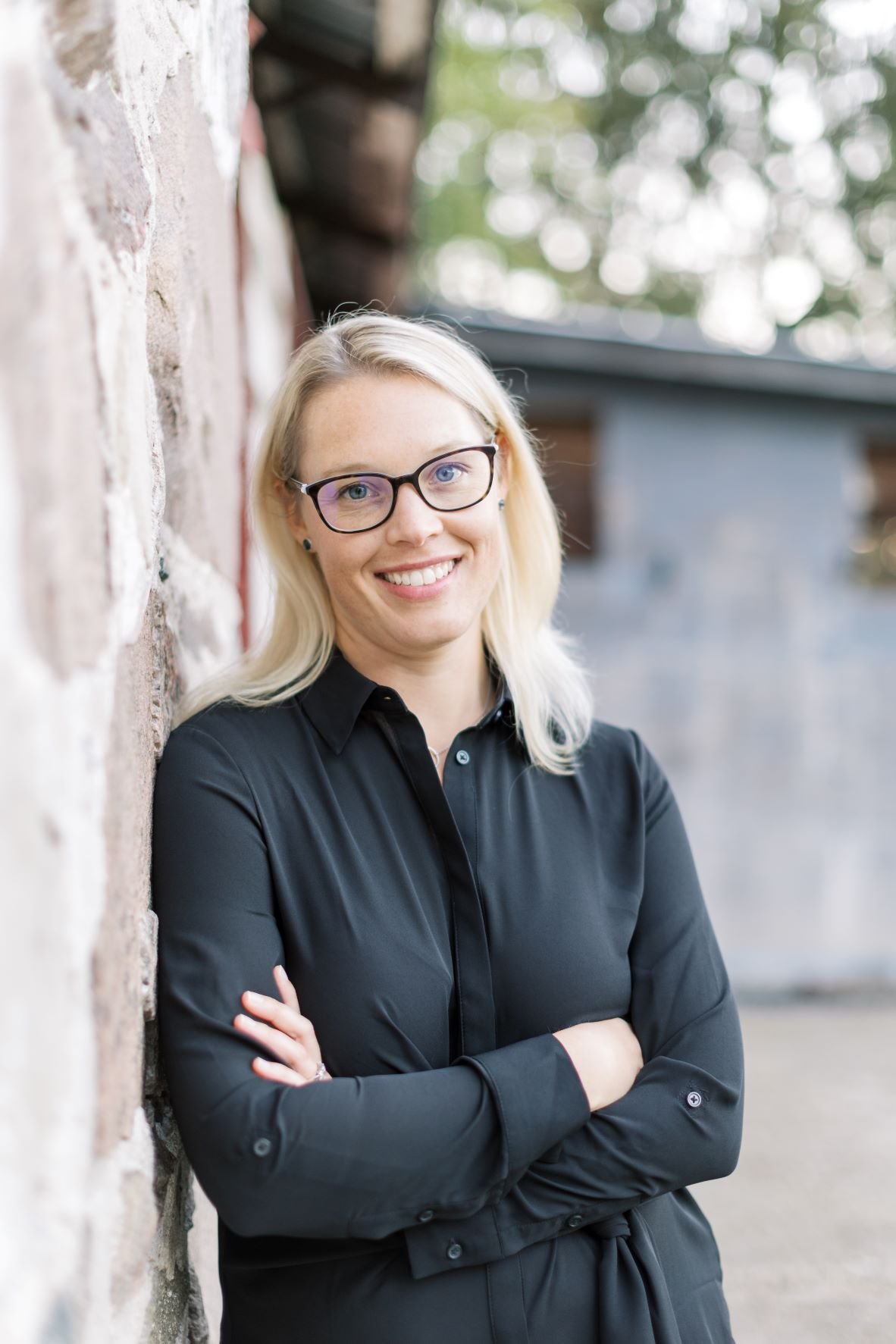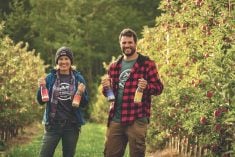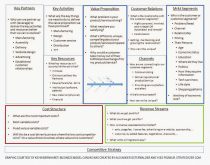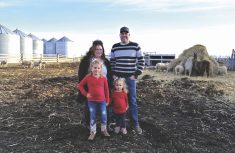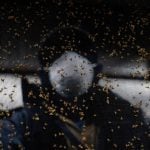Geena Luckett confesses she often feels she has imposter syndrome.
At the age of 11 she transitioned from city girl to farm girl when her dad became a fruit and vegetable producer to supply his specialty grocery stores. Today, she is the co-owner and general manager of Luckett Vineyards in Wallbrook, N.S. Despite taking a hands-on approach to learn the business by working in all facets of the operation, from harvesting grapes to managing events and working alongside the winemaker, she still has a hard time calling herself a farmer.
With the help of her full team of expert staff, Luckett manages the 130-acre operation that includes a vineyard, winery, bistro, tasting room and private event space. The farm offers an amazing view of the Bay of Fundy, attracting guests to enjoy a taste of Luckett Vineyards while taking in the scenery.
Read Also

Riding the tariff roller-coaster
What producers are doing to minimize the risk created by ongoing trade uncertainty.
Luckett has combined a commitment to quality and customer service to make Luckett Vineyards a producer of award-winning vintages and premier Atlantic wine and an agri-tourism destination that’s worthy of the winery’s tagline, an experience to phone home about.
As the winner of the 2024 Atlantic Outstanding Young Farmers’ award, Luckett shares with Country Guide her experiences at Canada’s Outstanding Young Farmers’ (COYF) event, her team approach to leadership, where she finds inspiration for new ideas, and the opportunities she’s seeing for grape growers and Atlantic Canada farmers.
Country Guide: How long have you been farming, and what’s changed since you started?
Geena Luckett: I’ve been involved in the winery since it opened to the public in 2011, and I would say the only thing that hasn’t changed is that everything is always changing! Our local grape-growing industry is young and we’ve experienced a lot of change in a short period of time. Not to mention how quickly technology progresses in agriculture, the speed at which our climate is changing, shifts in alcohol and health trends, the acceptance of innovation, the list goes on. We’re in a constant state of managing and leveraging the changes. It’s exciting and nerve-racking.
It’s important to point out that our changing climate is creating new opportunities for Nova Scotia grape growers. In the short period of time we’ve been growing grapes in our province (around 15 years), we’ve seen a significant impact from changing weather patterns and extreme weather events. The silver lining is that our seasons and growing days are extending, providing opportunities to grow new grape varieties, but the extreme weather conditions have been hard to manage. In the few years I’ve been farming, I’ve experienced hurricanes, a polar vortex and late May frosts to name a few.
CG: Tell us about your Outstanding Young Farmers’ experience.
Luckett: It’s been an amazing, invigorating and eye-opening experience. To have the opportunity to be surrounded by so many like-minded people who bring so much expertise, knowledge sharing and different perspectives is something you don’t get to experience every day. My fellow Outstanding Young Farmers (OYF) are the next generation of Canadian agriculture, so getting first-hand access to insights and connections like the ones I made through COYF is truly special.
While we all came together from different parts of the country, I was surprised how much we had in common, even though our farm businesses couldn’t be more different. I admit, I underestimated the value of this experience when I went into it and I am so grateful for the connections and ideas I came away with. I encourage every young farmer to participate in their regional OYF and COYF, if you get the chance.
CG: In your opinion, what makes a good leader?
Luckett: The ability to dig in, teach, prioritize, delegate, spot opportunities, listen with an open mind and have the confidence to challenge the status quo.
I like a horizontal approach to leadership. That’s why I surround myself with people on my team who are experts in their field, and I rely on their knowledge and expertise. We foster a very hands-on approach with all our staff and encourage everyone to help and learn from each other when they can. I try to leverage and utilize the skills of leaders around me and encourage everyone to work to achieve a collective goal.
CG: How do you think your approach to farming is different from previous generations?
Luckett: Like many other farmers, my connection to farming did come from my dad, but I didn’t always live on a farm. I also didn’t go to school for agriculture, so sometimes I do feel like an imposter in this industry, but I truly embrace the “learn as I go” mentality.
I’ve noticed a little more balance in the leadership and management style with millennial farmers compared to previous generations. It feels like it’s more common now that farmers are really engaging in initiatives and efforts related to things like mental health and wellness, work-life balance and community connection. Also, because of social media, we have a greater access to each other as farmers and business owners—which can be a blessing and curse — and that creates more opportunities for idea-sharing, problem-solving, networking, partnerships and collaborations.
CG: What does farming look like today compared to when you started out?
Luckett: I’m working through my imposter syndrome!
Farming today means that I need to stay on top of trends, especially since much of our business caters to what our customers are looking for and following in terms of food and drink trends. That means I’m spending time researching what’s going on in other, more mature wine-growing areas and watching things like marketing and wine label designs, new packing ideas and styles of wine. An obvious development since I started farming is the low- to no-alcohol trend, and that’s something we’re watching closely.
Part of my research, including looking for new ideas for grape growing, winemaking and hospitality experiences, means that I travel. My husband and I love to explore other wine regions of the world that feature agri-tourism experiences like ours for insights and ideas. I get to talk to fellow farmers and business owners from around the world about their challenges and opportunities and bring new ideas home. Getting off the farm to travel and learn from others isn’t a new idea, but it may not be one that many farmers from previous generations made time for.
CG: Where do you see the agricultural industry going in the future?
Luckett: I think we will see the median age of farmers decrease as new generations become so much more connected and informed about where their food and food products come from and how they are made. And while food security and climate change continue to threaten agriculture, they are also highlighting opportunities for new technologies, artificial intelligence, sustainability and social responsibility that are all growing priorities for people joining the workforce.

